Study Abroad Consultant Sentiment Survey: COVID-19 Through the Eyes of Agents in South Asia
In yet another one of its initiatives, Maple Assist exclusively conducted a survey to receive feedback from some of the top studies abroad consultants, or agents as they are popularly known, with a presence across India and Bangladesh, two of the largest source countries for Canadian institutions in the region.
During these unprecedented times, it is all the more imperative to study the international education space from the perspective of agents who roughly contribute up to 90% of all enrollments in this region. This study was designed to gauge their sentiments towards the response of Canadian institutions and government, and additionally to get their comparative outlook on how other nations have been reacting faced with the same situation. We hope that the results of this survey can be factored-in by the institutions while they work on their respective recruitment and communication strategies.
One of the most critical insights that emerged from this study relates to leveraging technology in reaching out to prospective and the current pool of applicants. Other vital takeaways bear upon marketing initiatives by Canadian institutions vis à vis other study destinations, and steps taken by various governments to mitigate the effects of this pandemic on international education. Consultants’ perceptions with regard to the communication between institutions and consultants and students have also been highlighted here.
Technology
Where limitations are imposed by closed borders and restricted travel, technology and innovative marketing solutions come in handy. Close to half of the consultants said their prospective students show much interest in webinars and virtual counselling sessions. Over a quarter did not feel so, but this category of agents was found to have made little investments in digital tools. Consultants who are adopting aggressive online promotion techniques have reported a favourable response from the student as well.
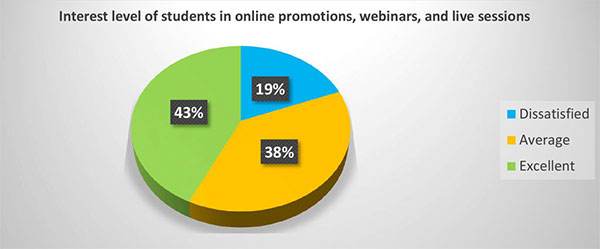
A majority of the agents believe that COVID-19 has driven institutions around the world to invest more in web-based recruitment strategies to stay ahead of the curve.

More than half of the consultants feel that Canadian institutions’ promptness in adapting to technology during the crisis was somewhat satisfactory when juxtaposed with other countries’ initiatives. UK institutions appeared to be taking a lead in this respect, followed by Canadian, Australian, and US institutions.
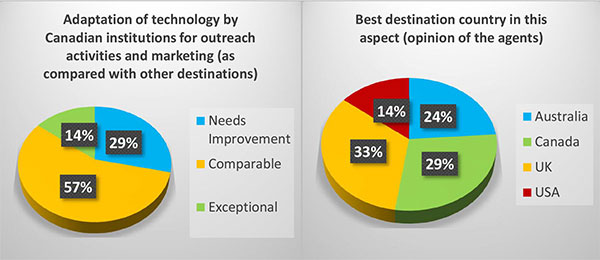
Government Response
Over one-third of the consultants surveyed felt that steps taken by the Government of Canada to support international students residing in the country were outstanding.
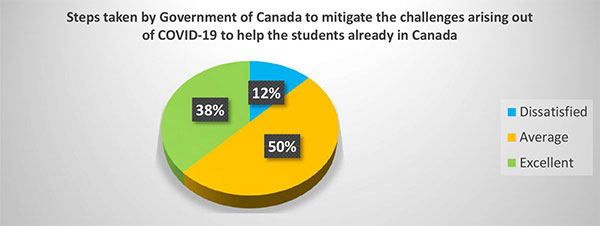
Moreover, the Canadian government’s communication strategy received a mixed response from the agents. About a quarter felt that the government did a fantastic job in communicating policy changes across various mediums, but others said that their response left much to be desired.

Most of the consultants feel that a well-coordinated and direct channel of communication between the visa applicants and High Commissions of Canada is needed. Australian and UK governments are clearly leading the communication strategy ratings in the survey.
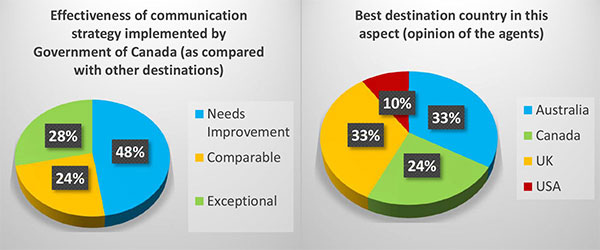
Communication and Engagement strategy & demonstrated flexibility
A whopping majority of the consultants agreed that Canadian institutions left no stones unturned to engage with them and their teams to facilitate smooth management of the crisis.
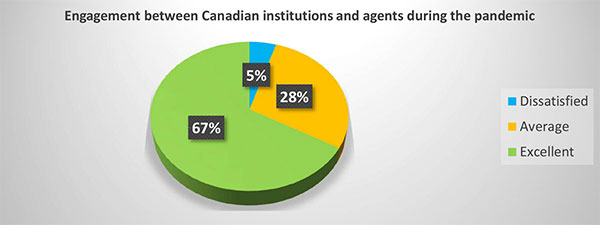
Among major study destinations, Canadian institutions received the most favourable ratings for their engagement with agents. However, agent perception of institutions’ engagement with students was less vibrant. A possible reason behind the tepid outlook on communication between the institutions and students could be that institutions expect the information to be passed to students via the agents.
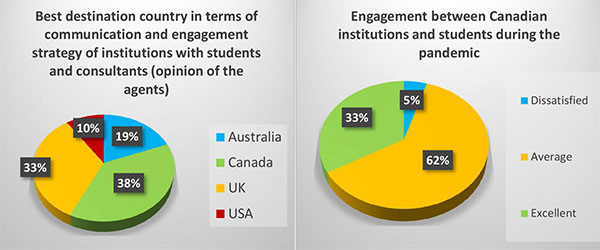
When asked to comment on best practices adopted by other study destinations, some 41% recommended further improving the communication strategy by acquiring a reactive rather than passive approach.

Agents are satisfied with the communication support for May intake, but most are not happy with the uncertainty around the September intake. Consultants said that a majority of institutions have not shared any contingency plans if the September intake is also affected. They feel that institutions should give them adequate time to prepare for a Plan-B so that they could work towards that simultaneously.
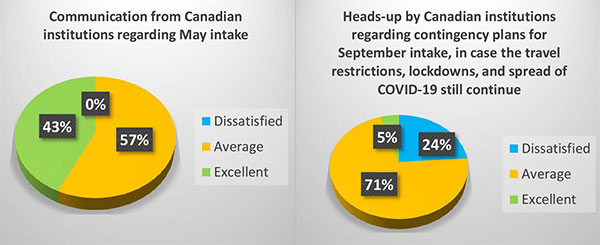
When it comes to flexibility, most of the agents are happy with the Canadian institutions’ response to fee payment deadlines, deferrals, and requests for refunds. Canada was accorded most favourable ratings in this parameter as well.
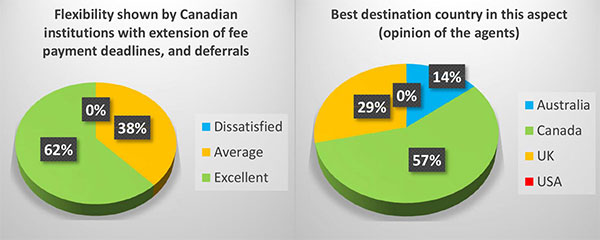
Canada as destination, decline in student enrolments and student commitment
A majority of agents are extremely happy with the patience and perseverance demonstrated by students and their families, but at the same time, they also observed mild restlessness and fear of uncertainty among the students.
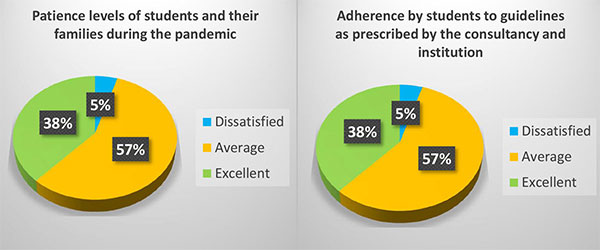
About half of the agents feel that even if travel restrictions are lifted before the upcoming intakes, 2020 will witness a decline of 25-50% in the number of students travelling abroad. They believe that the fear of COVID-19 may persist and weigh heavily on decision making.

On the brighter side though, students would rather wait than change their study destination according to the agents. Also, most students are committed to their respective institutions.
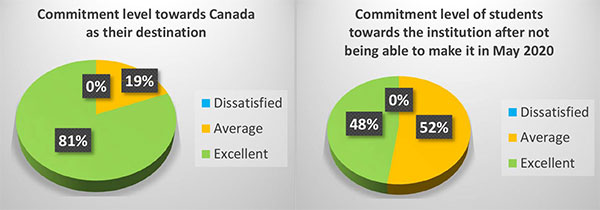
Notwithstanding the downsides of this grim season, Canada still happens to be the most sought-after study destination for students, COVID-19 or no COVID-19. We hope that the institutions consider recommendations made by the study abroad consultants to send an even stronger message to the international students that Canada is committed to remaining their top study destination.
